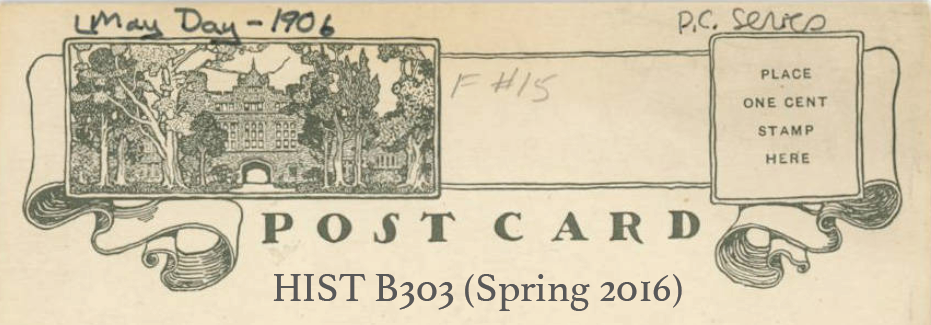While I felt at times that Wilder’s topic was simply too big to do his work justice, I did appreciate his massive scope, because it helped demonstrate that it was not just one university or a few outliers on the sidelines that helped perpetuate American slavery, but rather the entire American education system. In light of this, I began to think about the protests we saw particularly last November against buildings named for extremely racist or otherwise problematic figures (the two major examples being the Woodrow Wilson School at Princeton and the John C. Calhoun College at Yale, but more recently the call to rename TGH on our own campus).
In each of these cases, the person identified as a problem comes from either the late antebellum period or the postwar period, not the era Wilder was examining. On the one hand, this sort of makes sense: to quote Latin American historian Steve J. Stern, “Denunciations of individuals for failing to rise above their times is an exercise that misses the point; it simply condemns choice targets for lacking the trans-historical vision that escapes most of us.” In other words, to call for renaming every building associated with a slaveholder may seem altogether too much, because slaveholding was a fact of the eighteenth century for most, while condemning Wilson or Calhoun or Thomas is made easier because they were particularly racist even for their own times.
While I have mixed feelings about the politics of renaming of buildings and colleges that I won’t get into here, there is a larger problem at hand here that I see (and that Stern goes on to address, too, although he speaks specifically about the historical era he is studying): why are we focusing on the later generations and not more on those that Wilder is looking at? Dismissing the revolutionary and colonials eras with the comment that everyone was a slaveholder back in the 1700s prevents us from identifying the extreme problems– in this case, the heads of universities– just as saying that everyone in Thomas’s era was racist by our standards allowed her particularly vehement and base racism to pass relatively unnoticed for so long.
We can’t condemn individuals for lacking trans-historical vision. But we can condemn them for lacking humanity, particularly when they failed to live up to the standards of their own era. Why, then, are we remaining silent on the myriad of other problematic names and figures in and around our universities?
Stern’s quote is taken from the introduction to the second edition of his book Peru’s Indian Peoples and the Challenge of Spanish Conquest: Huamanga to 1640 (Madison, WI: University of Wisconsin Press, 1993) xliv. This section of his intro is available on Google Books, if anyone is curious: Stern — Peru’s Indian Peoples.
